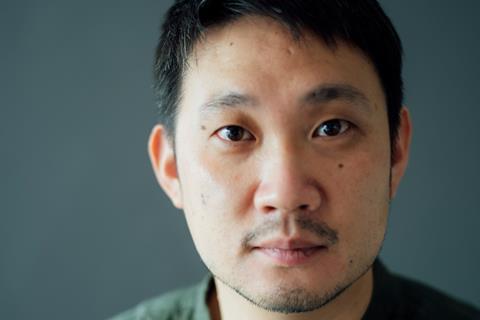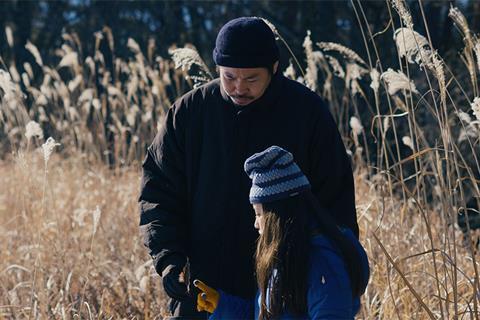
Japanese filmmaker Ryusuke Hamaguchi knew he had a tough job on his hands to follow up Drive My Car, winner of the Palme d’Or at Cannes in 2021 and the Oscar for best international feature film.
However, rather than going bigger, Hamaguchi has returned with the more quiet, meditative feature Evil Does Not Exist. It premieres in Competition at Venice this week and has already been sold by M-Appeal to several distributors, including Sideshow and Janus Films for the US and Modern Films for the UK and Ireland, ahead of playing Toronto and New York film festivals.
“Even before I embarked on [Evil Does Not Exist], I knew that I wanted my next work to be very different and that somehow it was going to be important for me,” says Hamaguchi from Tokyo, shortly before leaving for Venice.
-
Review: Evil Does Not Exist
The project began two years ago when Eiko Ishibashi, who composed the score for Drive My Car, asked the filmmaker to create footage for a live musical performance. Shot in a rural area two hours from Tokyo, the footage makes up the silent film Gift, which will premiere at Film Fest Gent on October 18 with a live score set to be performed by Ishibashi.
But Hamaguchi wanted to take it further and crafted Evil Does Not Exist, which features dialogue and is more than 30 minutes longer, telling the story of a father and daughter in a village who confront proposals to construct a glamping site in their rural setting.
The filmmaker, who also won the Silver Bear grand jury prize for Wheel Of Fortune And Fantasy at the Berlinale in 2021, speaks to Screen about the journey of Evil Does Not Exist, following the success of Drive My Car, his abandoned project Our Apprenticeship and a spoiler-free comment on how the film ends.
How did the making of Evil Does Not Exist come about?
I realise the genesis of this film can be a bit confusing because it is quite different. I made a film called Gift, which is going to premiere at Film Fest Gent in October and is a silent film made to be played with a live musical performance by Eiko Ishibashi. Once I made the film, I asked Eiko for permission to create a version where we hear the dialogue of the actors to create a different film.
What are the key differences between Gift and Evil Does Not Exist?
The length is different and while they do share footage, Gift uses footage that you don’t see in Evil Does Not Exist. There are also different shots of the same scene and extra scenes. The order of the films are quite different as well. That said, the way the story develops is quite similar. The live performance element is something that I don’t even know what it’s going to be like yet but I think the resulting experiences will be very different.
Did making this film make you think differently about how sound, image and storytelling work together?
Yes, I was thinking differently. I often write dialogue before starting anything to understand what story I want to tell and learn the way my characters think. However, with this, I couldn’t rely on speech so I needed to rely on visuals to sustain the film and grasp the audience. As a result, I started by going to the location – on the east side of Nagano Prefecture, about a two-hour drive from Tokyo – trying to figure out the script and experimenting with different kinds of shots. I worked in a way where visuals were the priority.

Your leading man is played by Hitoshi Omika, who has virtually no previous on-screen acting experience. How did his casting come about?
He played a magazine editor in Wheel Of Fortune And Fantasy, but that’s a very small part and he was mainly working with the on-location production team. On this, he was driving me and cinematographer Yoshio Kitagawa around the locations, and we’d have him stand in for scenes. As I saw him do more, it became more difficult for me to imagine any other person playing the role. I knew he had no real acting experience but also that he is a director himself and I felt there was a soul there that really wanted to express. I knew that if we prepared well, he would be able to act so I offered him the role. During the production, he was still driving and doing a lot of crew work so was really active in many roles.
Evil Does Not Exist feels more meditative than your previous works. Do you feel this was a departure from what you have done before?
If this is a departure, that would really make me happy. When I was shooting this film, I felt like I was shooting a film for the first time. It was a completely new experience for me. The discoveries I made while making this film will help me in the future and be active in my future works.
Did you feel any pressure to follow up the massive success of Drive My Car?
[Long pause] I wouldn’t say I was completely free of pressure but this was an ideal environment where I didn’t really have to think about these things. Once I started concentrating on making this film and how to make it work, I wasn’t really thinking about what happened post-Drive My Car. But even before I embarked on this, I knew that I wanted my next work to be very different and that somehow it was going to be important for me. I think the result is a good one.
Was that desire to do something different part of the decision to stop production on Our Apprenticeship?
Yes, in some ways. That production stopped because of Covid but there is also a multi-language theatre element in that project, an idea that got absorbed into Drive My Car, so I thought that it would be no longer fresh to continue this. Maybe one day when I can find that project to be fresh to me again, I can work on it again but it’s definitely not a high priority right now.
How do you think audiences will interpret the ending of Evil Does Not Exist?
I think the way to answer this is that I’m actually looking forward to seeing how audiences will interpret this. I did have some preview screenings and heard surprising interpretations from people so I’m looking forward to being surprised. There are some ideas within me but ultimately I want people to enjoy the ending. Part of me also wants people to feel a certain kind of hesitation towards it as well. That idea of hesitation is cinema.
This interview was conducted through a translator and has been edited for clarity.

























No comments yet